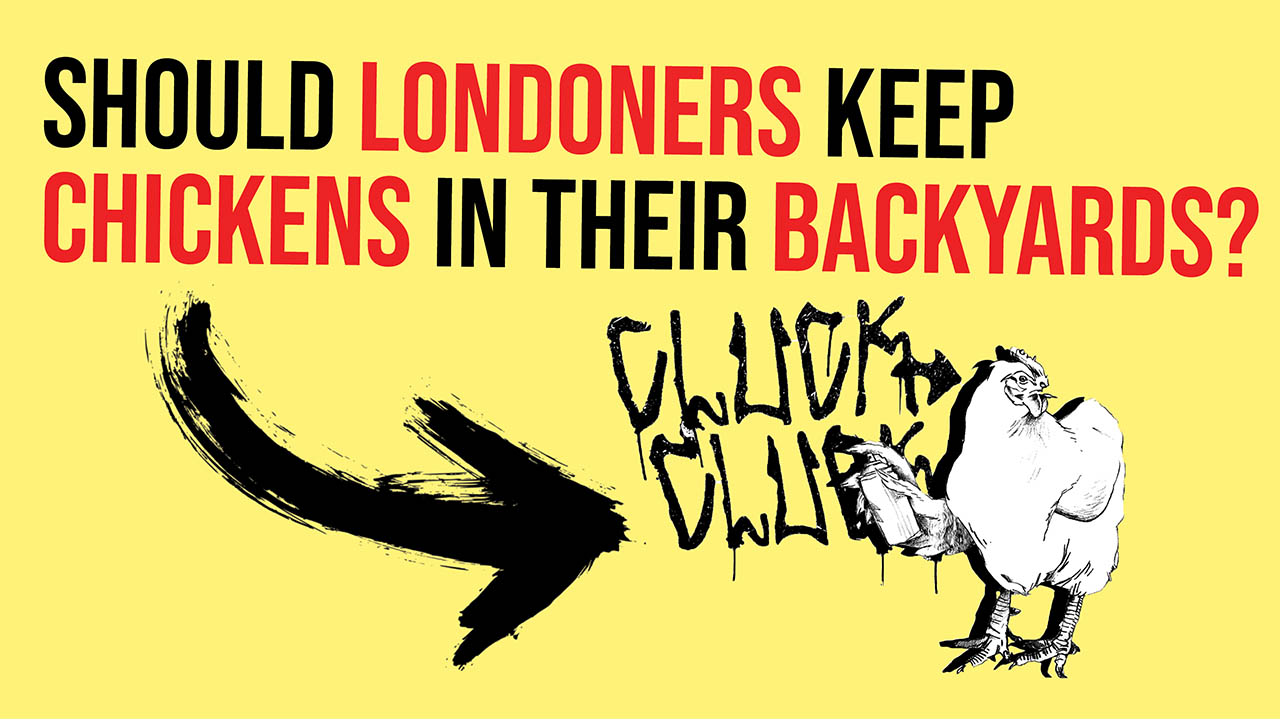Should Londoners have chickens in their backyards?

Evidence shows that humans first started raising fowls in China and Southeast Asia about 10,000 years ago. The original purpose, however, was cockfights. It was only around 400 to 200 BC that we started raising them for food. Because of such an ancient relationship, chickens evolved alongside humans, becoming what we call a domestic species. Since then, the consumption of chicken has grown so much that Canada made $2.8 billion from chicken production in 2019 alone.
But the large consumption of chicken has changed how they are raised. Nowadays, it is a well-known fact that the chicken industry has very questionable methods. They keep their animals packed by the thousands in small spaces, with no natural light or ventilation. They are born, bred, and industrially killed without ever experiencing the sunlight, a breeze on their feathers, or any aspect of nature. Their lives in these places is miserable, to say the least.
But what if we could change this? What if we could bring back the chickens to live close to us? Well, if you’re thinking about doing this in London, things are not that simple. It happens that raising backyard chickens is illegal inside the municipal boundaries of the City of London. And not only chickens; all kinds of fowls and even bees. This could make sense if it was in a more urbanized city, but London still has plenty of rural space in its boundaries. According to ward 9 City councillor Anna Hopkins, this subject has been discussed for many years. “If you live on a property that has space to allow the safe keeping of chickens, […] why can’t we do that?” she said. “Especially in my ward, where a lot of it is rural, why wouldn’t we be able to look even at a [pilot] project? These things are opportunities where we can be sustainable.”
The last big attempt was in 2017, when the city began to develop the Urban Agriculture Strategy. The chicken topic was dropped after some safety concerns were raised. They mentioned smell, noise, predators, sanitation, etc. Last May, the discussion reappeared after the shortage of food became a possibility during a lockdown. But the members of the Community and Protective Services committee decided to take no further action. “I always think [that] when you’re going through a pandemic, at the beginning, introducing new things… it’s not the right time,” Hopkins said. “We’re at a better place, maybe now, to address these things.”
Steven (last name withheld) disagrees with the safety concerns around chickens. He lives in London and raises three hens and five beehives in his backyard. “Hens are the delight of my life,” he said.
“This is a great way to get fresh eggs. The girls are fed organically, […] their coop is cleaned every day.” He said the result of his good care is that he has never faced any of the problems previously listed. “They make no noise, they create no smell, they don’t do any of those things that people have this conjuring mind to say that they do,” he said. “If you’re going to raise hens, you have to be respectful.”
“Some of our most expensive properties in Canada allow hens,” Steven said, when asked about the belief that the chickens might lower the price of a property. “Victoria, Vancouver, Toronto, Kingston, Kitchener. You’re in far more danger of your next-door neighbour’s dog than you are of a hen in the backyard of your neighbour.” Like he mentioned, Toronto approved a pilot project in 2018, allowing residents in some areas to raise up to four chickens. He thinks that a project like this here would be very welcome. “At least it opens the dialogue,” he said.
The benefits of backyard chickens go beyond giving them a happy life and having fresh eggs every morning. They will also give you a naturally fertilized garden and a house free of pests like mice, scorpions and termites. These potential benefits bring up the topic of food security, too.
Diane Szoller, president of the Thames Region Ecological Association, explained that food security often is discussed from the perspective of families that have less access to fresh organic or local food, they may live in what’s called a ‘food desert,’ where there’s no groceries stores. Sometimes they are subjected to having to buy some of their food at small shops, which can be more expensive, and can lead to not actually being able to access some of the foods that you really need to keep healthy. Raising chickens can help people in this situation to break the dependence of food shops, especially during unstable times.
Judging by the current situation, it seems like this issue has a long way to go before finding a resolution in London. And it might take some time for these chickens to cross the road of illegality and for Londoners to peck the benefits of such an ancient human-animal relationship. But while we can’t raise chickens, we can raise the dialogue.

















